
Unclear boundaries between investigator-controlled and sponsor-managed data in IRT systems are creating avoidable compliance risk, particularly around investigational product inventory and quality actions.

Unclear boundaries between investigator-controlled and sponsor-managed data in IRT systems are creating avoidable compliance risk, particularly around investigational product inventory and quality actions.
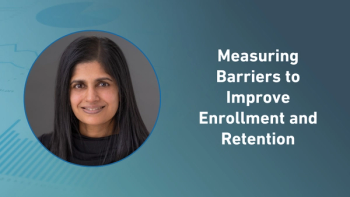
Explore early data from the ACTS program that reveal the volume and types of patient-reported barriers to cancer care and clinical trial participation, highlighting the critical role of support services in sustaining enrollment.
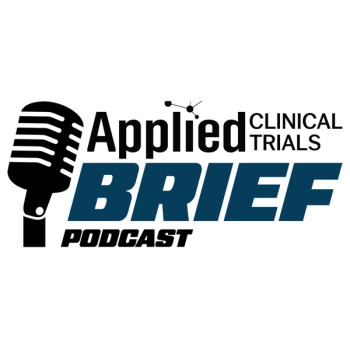
In today’s ACT Brief, we examine new data from the American Cancer Society on how transportation and lodging support affect cancer trial participation, review the most-viewed Applied Clinical Trials video interviews of 2025, and break down key trial results supporting the FDA approval of narsoplimab for transplant-associated thrombotic microangiopathy.

Funding uncertainty, legal and political pressures, trade policy shifts, site collaboration strategies, and leadership perspectives were central themes across Applied Clinical Trials’ most-watched video interviews.

Learn why combining AI-enabled trial matching with transportation, lodging, and financial assistance is essential to turning trial eligibility into actual participation—and why matching alone is not enough.
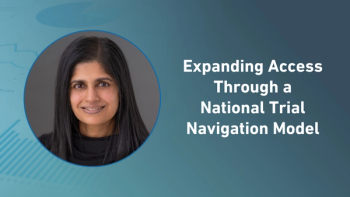
Examine how the American Cancer Society’s national ACTS expansion is designed to simplify trial discovery, reduce logistical barriers, and help patients, caregivers, and providers navigate cancer clinical trials through a centralized support model.

Generative AI adoption, regulatory scrutiny, DEI policy shifts, real-world evidence, and rare disease economics emerged as key themes across these most-read Applied Clinical Trials articles shaping clinical research and drug development today.

Persistent recruitment delays, high dropout rates, and missed timelines continue to slow global clinical trials, while data show that sub-Saharan Africa offers a largely untapped opportunity with established research capacity, large patient pools, and strong enrollment and retention performance.

In today’s ACT Brief, we cover the FDA approval of oral Wegovy based on Phase III OASIS 4 results, recap the most-read Applied Clinical Trials articles of 2025, and examine why data quality remains critical to enabling AI in clinical trials.

The FDA approval of oral semaglutide marks the first GLP-1 pill for chronic weight management, supported by Phase III OASIS 4 data demonstrating substantial weight loss, favorable safety, and improvements in cardiometabolic risk factors.

Review the performance, engagement, and satisfaction metrics sponsors and CROs should track to determine whether operational improvements are reducing burden and strengthening site relationships.

In today’s ACT Brief, we look at how AI-enabled workflows can automate existing site processes, review the FDA approval of subcutaneous Lunsumio VELO for relapsed or refractory follicular lymphoma, and examine early clinical development activity for a pan-KRAS inhibitor licensed by AstraZeneca.

The FDA has cleared subcutaneous mosunetuzumab for adults with relapsed or refractory follicular lymphoma after two or more prior therapies, supported by Phase I/II data showing durable responses and a manageable safety profile with markedly reduced administration time.

Learn how AI-enabled automation can streamline existing operational processes, reduce manual effort, and enhance efficiency while allowing sites to work as they do today.

In today’s ACT Brief, we examine why fragmented data systems continue to slow life sciences research, review how sponsor sourcing decisions may affect site experience and study execution, and report on topline Phase III results for Eli Lilly’s oral GLP-1 therapy orforglipron.

Only with recent advances in cloud computing, data standards, and interoperable platforms has it become feasible to realize the full potential of a digital thread.

Analyze how functional sourcing, application strategy, and consistency across sponsors and CROs directly influence site workflows, execution efficiency, and long-term collaboration.

In today’s ACT Brief, we examine how sponsors are reassessing new engagement technologies to avoid increasing site burden, review new research on integrating unstructured health data to scale eSource-enabled trials, and cover Novo Nordisk’s NDA submission for its fixed-dose amylin–GLP-1 obesity therapy, CagriSema.

New research finds that while eSource adoption is advancing through EHR-to-EDC workflows, scaling its impact will depend on integrating unstructured clinical data using AI, shared standards, and collaborative validation models across sites, sponsors, and vendors.

Explore why new tools should aim to remain burden-neutral before delivering efficiency gains, and how sponsors can introduce systems that benefit sites without disrupting daily trial management.

In today’s ACT Brief, we look at emerging operational changes aimed at reducing site burden, review the FDA approval of GSK’s twice-yearly biologic for severe asthma, and examine a national priority voucher granted for a new multiple myeloma treatment combination.

The FDA has approved Exdensur depemokimab-ulaa as an add-on maintenance therapy for severe asthma in patients aged 12 and older, supported by Phase III SWIFT trial data showing significant reductions in annual exacerbations with twice-yearly dosing.

Examine how evolving sourcing strategies, functional standardization, and system choices can help sponsors support sites more effectively while minimizing operational switching and complexity.

In today’s ACT Brief, we examine new survey data revealing what patients value most in remote clinical trials, break down Sanofi’s latest partnerships aimed at advancing Alzheimer’s and autoimmune therapies, and look at how AI-powered digital pathology is being integrated into oncology research through a new biopharma collaboration.

New survey data show a strong patient preference for fully remote clinical trials, underscoring how convenience, intuitive technology, and FDA-cleared digital tools are reshaping enrollment and retention strategies as decentralized models become a lasting fixture in clinical research.

In today’s ACT Brief, we close out our McKinsey interview series with a look at how AI could transform clinical trials end to end, review new Phase III data supporting Gilead’s investigational HIV regimen, and examine an FDA approval that reshapes first-line treatment for HER2-positive metastatic breast cancer.
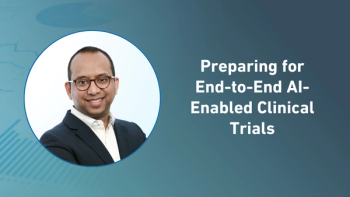
Learn how clinical operations leaders can build technology adoption, transform workflows, and cultivate digitally savvy talent to successfully implement AI across the entire clinical trial lifecycle.

Results from the Phase III ARTISTRY-2 study show that a fixed-dose combination of bictegravir and lenacapavir achieved non-inferior efficacy to Biktarvy in adults with HIV who switched therapy, supporting Gilead’s plans to advance the regimen toward regulatory submission alongside data from ARTISTRY-1.

In today’s ACT Brief, we look at new evidence showing how targeted training can build research readiness at community cancer centers, explore McKinsey’s view on how digital tools can make trials more patient-centric and geographically inclusive, and review new Phase III results that could reshape obesity and osteoarthritis treatment.
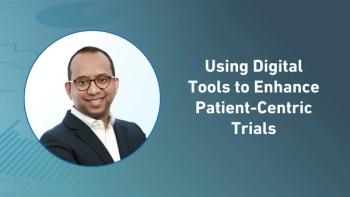
Discover how remote assessments, wearables, and digital technologies can decentralize data collection, reduce patient burden, and enable trials to reach more diverse and representative populations.